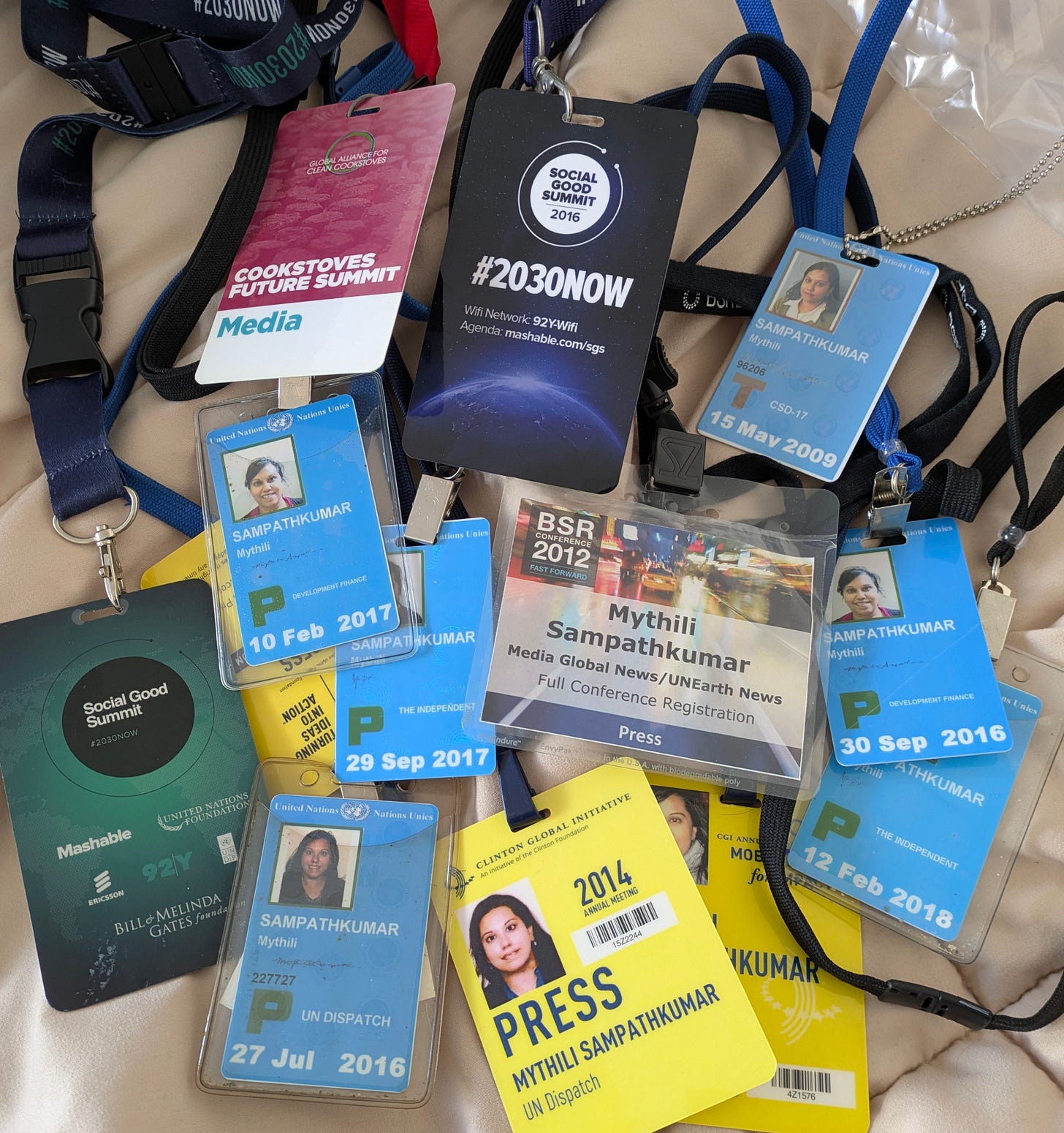hUNGAma, or the lack thereof
Welcome to Export Quality, your home for news by and about South Asian Americans and Canadians - and everything in between
As the neighborhood between E 34th St and 1st Ave all the way up to the E 50s and points west collectively braced for the droves of NYPD and other security, eager diplomats and fed up development workers alike, lots of helicopters and sirens, and world leaders being treated like every day New York peasants - the rest of the world joined in watching the United Nations General Assembly (UNGA) this past week. Welcome to the hUNGAma (commotion in Hindi) - and the lack thereof - of UN/Climate Week in New York.

Some highlights:
Indian Prime Minister Modi did not attend UNGA this year and it brings up a lot of questions given his affinity for attention from the West. Instead Minister of External Affairs S. Jaishankar will give a speech long after most of leaders have left New York on September 27. Interim leader Mohammed Yunus, who took over after mass protests last year, gave Bangladesh’s speech. After violent protests in Nepal largely driven by young people and a WILD use of a Discord channel to cast votes for a new government, Nepal’s official UNGA presence seemed to be limited to Permanent Representative to the United Nations, Lok Bahadur Thapa.
Several world leaders walked out at the beginning of Israeli Prime Minister Benjamin Netayahu’s speech. I don’t think I’ve seen such a decisive action on the part of country representatives at UNGA after the uproar over the U.S. start of the Iraq War, followed by the mess that was the 2009 climate agreement negotiations in Copenhagen. Whether you agree with it not, there is a definitive shift in feelings towards Bibi and the Palestinian state. Even the UK, who one could argue started this awful, destructive conflict with its arbitrary backroom, pith helmet-driven cartography, has now recognized Palestine. It joins 155 other countries - including every South Asian country which did it back in 1988.
Kenyan President William Ruto pushed for a permanent seat on the UN Security Council for the African continent. Reforming the ~ often toothless ~ body is nothing new. But, file away this piece of information because I think ideas in this vein will only grow louder as the U.S. influence on the African continent wanes as development funding has run dry (see below) and China’s grows bigger by the day.
What is there to say about President Trump’s speech? It was the oratorical dumpster fire to which we have all uncomfortably grown accustomed. Sadly, it may have been the longest amount of time at a podium any U.S. leader has spent talking about climate change in recent memory - even though he spent all of it calling it a “hoax.” No one seemed to walk out of Trump’s speech but that didn’t stop him from accusing the world body of “triple sabotage.” [No word if the Beastie Boys are suing him for copyright infringement]. At least we still have dark humor:
And indeed, the escalator did stop. The teleprompter did, too. And Trump did complain about the UN’s financial state. The irony and tragedy of that statement is that he put an end to the U.S. being its largest funder. But, no one walked out of his speech.
What I’m curious about: Trump has had a profound effect on the UN already, particularly with disbanding the U.S. Agency for International Development earlier this year (yes, that was in 2025 though it feels like 30 years ago) and halting contributions to various other agencies - all amounting to a drop in the bucket of the federal budget. There are stories of New York-based UN agencies sending staff back to their home countries as they decide where to relocate. Agencies like the World Food Programme already took a hit during his first administration. What’s next for all the people who were forced to rely on this aid?
As with all federal government cuts, there are the immediate effects, but the ripple, down-chain effects are less thought about, less covered by mainstream media, and can be just as, if not more, destructive.
And, this isn’t just a horrific problem of starving children in Gaza or stemming the ravages of HIV/AIDS primarily in African countries through the PEPFAR.
Here’s the bigger point our community may not consider: If you’re South Asian and reading this, you’re alive because of American-funded global development and scientific innovations like Norman Borlaug’s dwarf wheat or polio and tuberculosis vaccines. You’re here because the subcontinent needed help in the wake of Independence and, even with all its faults and racism, agencies like USAID and the UN came through.
What happens going forward to this generation of people who need that help?
Mandatory viewing (UN/Climate Week edition):
US is violating human rights laws by backing fossil fuels, say young activists in new petition AND Climate activists gather in New York for ‘Sun Day’ solar energy and anti-billionaire rallies- Dharna Noor for The Guardian
Trump wants to win AI race, but his immigration policies could get in the way - Deepa Shivaram for NPR
From Host, Asma Khalid for BBC News’ The Global Story podcast:
Talib Visram has a great newsletter called America’s Cup. In his words: “In the year leading up to America’s World Cup, I’ll be diving into the clash of global soccer joy and the U.S. vision, in an era of chaotic government, unpredictable policy, and geopolitical tensions. Can soccer’s magic outshine the drama, or will America rewrite the rules to fit its own policy plans?”



